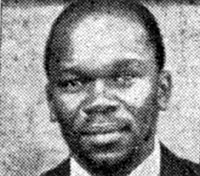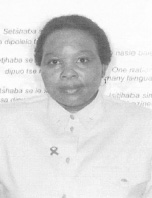Meshack Mogale



Abraham Barnett Koatlhao Secchoareng was born in 1924. Resigned as a teacher when the Bantu Education Act was introduced. Active in the Kimberley ANC.

Nomadhlangala Cosy Europa Ndabezitha was born on 22 September 1953 in Durban, Natal (now KwaZulu-Natal) to Madhlangala Dukuza Ndabezitha and Ntombinkulu Bhengu. Her late father, Madhlangala Dukuza Ndabezitha, a pioneer school principal in Natal was a founding member of the South African Native National Congress (SANNC) later renamed the African National Congress (ANC).
